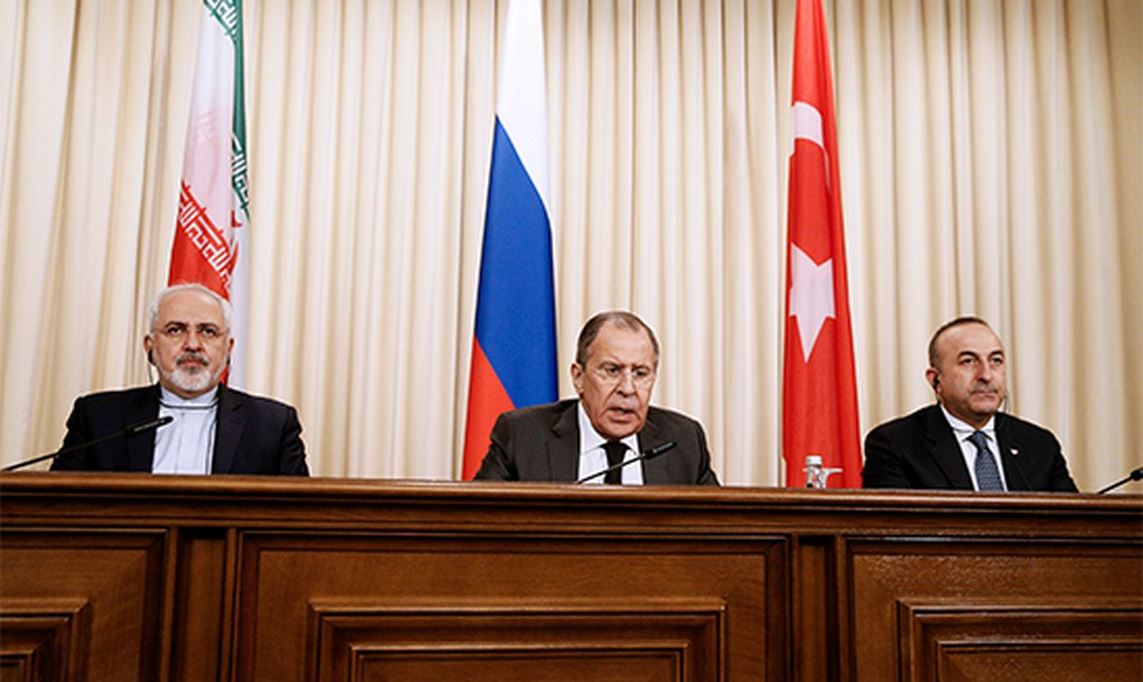Alwaght- Intra-Syrian talks aimed at ending the deadly conflict in the country are scheduled to be held in Kazakhstan capital Astana in a new push for peace.
On December 17, Russian President Vladimir Putin and his Turkish counterpart Recep Tayyip Erdogan discussed in a phone call the possibility of a meeting in Astana between the parties to the Syrian conflict with Russia, Iran and Turkey as potential mediators.
Already the Kazakh President Nursultan Nazarbayev has backed the initiative including providing a platform for such talks in Astana.
Since 2011 when foreign-backed terrorists emerged in Syria, there have been several rounds of talks and initiatives aimed at restoring peace in the war-weary country. However due to interference by some Western countries and regional states backing militants and terrorists, the talks ended in failure. However, the prevailing situation in Syria globally provides better prospects for reaching a tangible deal in Astana.
US shift expected in Trump’s Administration
The election of Donald Trump as the United States president is expected to result in a shift of Washington's policy regarding Syria.
Immediately Trump is inaugurated on January 20th, one of his major foreign policy tests will be on Syria. Trump's administration will have to join other countries in their efforts to settle the Syrian crisis otherwise Washington will be isolated. Considering Trump’s reported rapport with Russian President Putin and his criticism of Obama’s policy on Syria, we are likely to see a more realistic approach in solving the country’s crisis.
On 22nd December, the Syrian government officially declared that the strategic city of Aleppo had been liberated after occupation by foreign-backed terrorists since 2012. This crucial victory basically implies that regime change in Damascus, which was the goal of the Obama administration and Saudi Arabia, has effectively been defeated and so has the devious plan to balkanize Syria.
Therefore, Washington, Riyadh and the opposition groups they back will be compelled to accept the new reality and eventually participate at talks on Syria’s future otherwise they will face further isolation. Indeed, Turkey which was initially on the US, Saudi camp has apparently switched sides following the recent events in Syria.
Iran, Russia, Turkey Alliance leads to nationwide truce in Syria
Russian Foreign Minister Sergey Lavrov recently noted that trilateral cooperation between Russia, Iran, and Turkey is the most effective way to settle the Syrian crisis, adding that Moscow, Tehran, and Ankara have drafted a document aiming to resolve the crisis.
Russia’s foreign minister held a meeting in Moscow with his counterparts, Mevlüt Çavuşoğlu of Turkey and Mohammad Javad Zarif of Iran, in Moscow on December 20th.
This alliance has already achieved its first major goal which is a nationwide ceasefire in Syria. Russian President Vladimir Putin on Thursday confirmed an agreement has been reached on a ceasefire in Syria and the start of peace talks. The agreement is the result of joint efforts by Russia, Turkey, and Iran, Putin said.
The Syrian Army on Thursday declared a comprehensive cessation of hostilities across the country starting at 00:00 on 30/12/2016 while reiterating that the terrorist groups including al-Nusra Front, ISIS and their affiliates are excluded from the truce.
Hope in Astana talks
Iran, Russia, and Turkey will sit on the negotiating table with Syrian opposition groups and expectations will be high on an agreement which will lay down a framework for long talks aimed at arriving at final solution to the country’s crisis and concerted war on terror groups such as ISIS and Al Nusra Front.
Already, a new Syrian opposition group, the Syrian Democratic Front, stated that the representatives of the group are ready to participate in the intra-Syrian talks in Astana, Kazakhstan.
However, these talks will face challenges since the Saudi regime and Qatar which control several armed groups in Syria are currently not part of the talks. Therefore, Riyadh and Doha should be compelled to stop backing terrorist groups and accept a political solution while Western countries also will be required to stop sending more weapons to terrorists. All warring parties in Syria have an interest in seeing peace returning to the country and it is only the terrorists and the Israeli regime who wish to see war continuing in this Arab state.
The upcoming talks in Astana provide hope and a suitable opportunity for peace in Syria based on the aspirations of Syrians. In the likely event of an agreement, any party which violates such a deal will be held responsible for the consequences of any emerging conflict. The road to peace will not be easy but the warring sides will have to sacrifice for the sake of common interests.



























